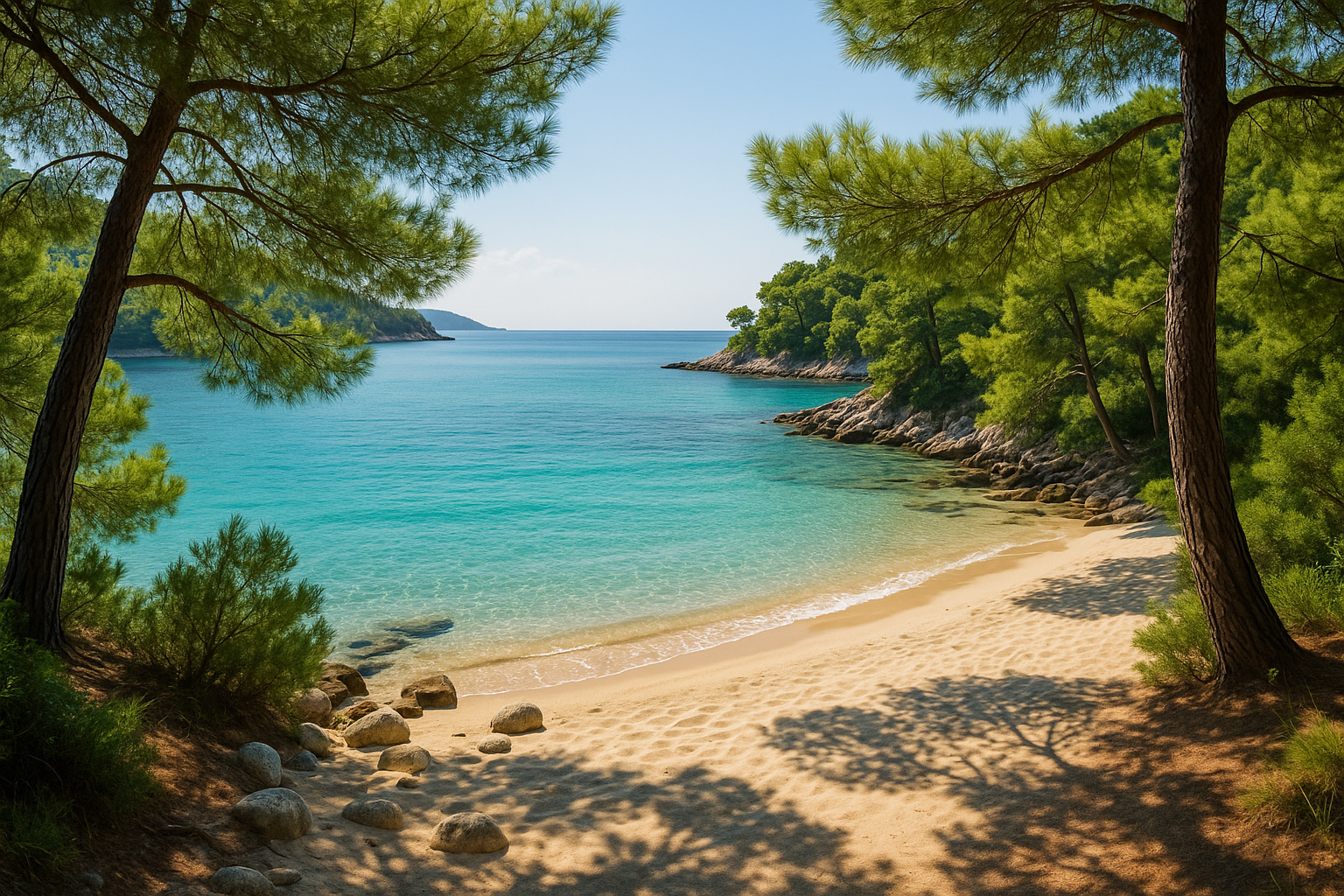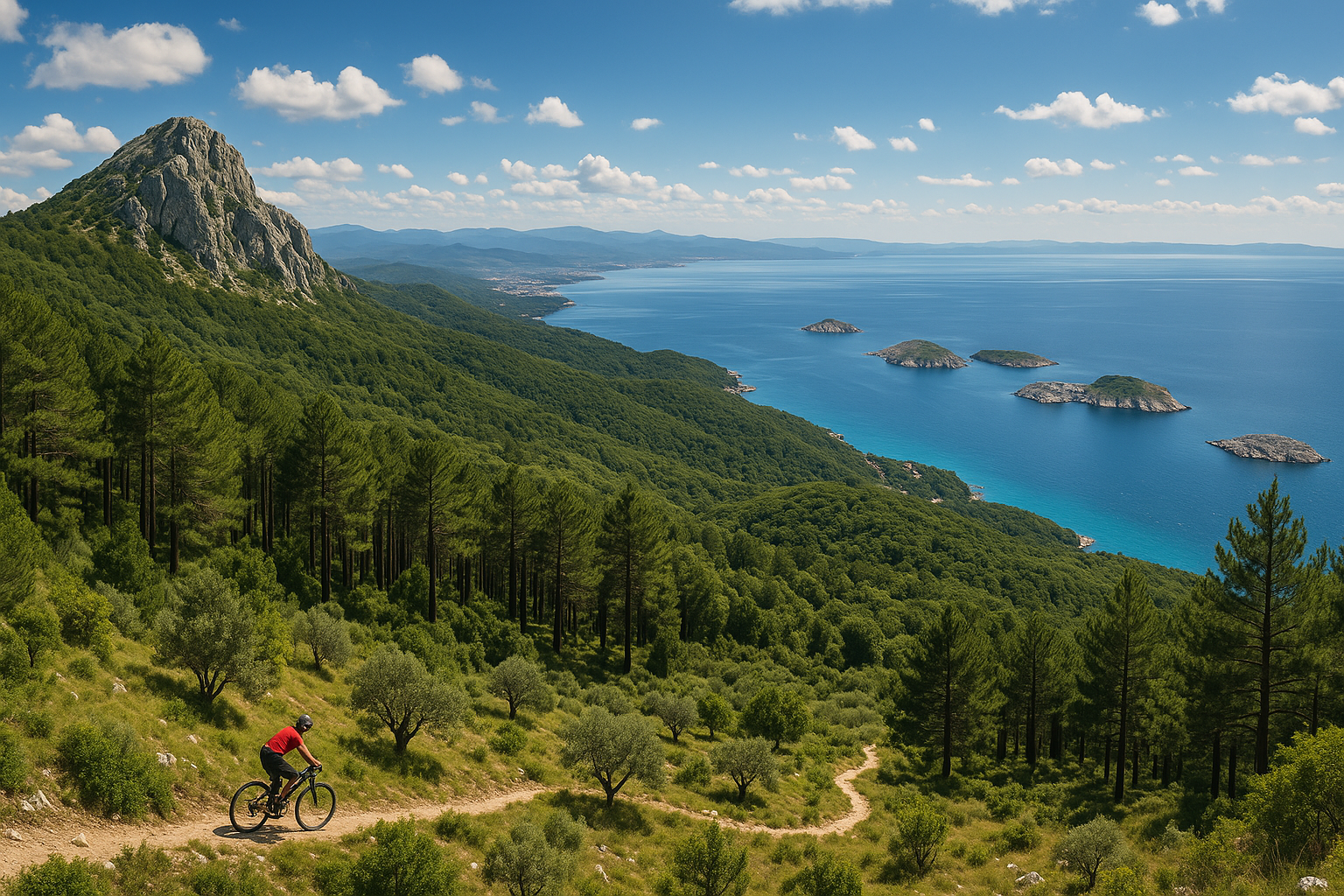Nestled along the shimmering Adriatic coast, the Kvarner Riviera offers a glimpse into a bygone era of glamour. Its crown jewel, Opatija, serves as a gateway to this stunning region. Imagine grand villas painted in soft pastels. Picture lush, manicured gardens meeting the brilliant blue sea. This is not just a destination; it is an experience steeped in history and natural beauty. The region combines the sophistication of the Austro-Hungarian empire with the relaxed charm of the Mediterranean.
An RFID-blocking passport holder protects your personal information from electronic theft while keeping your documents organized and easily accessible. Additionally, a travel document organizer keeps all your important papers, tickets, and passports in one secure, easy-to-access location. You’ll also find that a travel adapter ensures your devices stay charged no matter where your journey takes you, with compatibility for different outlet types worldwide. Don’t forget that a European SIM card provides affordable data and calling options, keeping you connected without expensive roaming charges. You’ll also appreciate that a portable power bank with wireless charging keeps your devices powered throughout long travel days and flights. To complete your setup, a comprehensive travel guidebook offers insider tips, detailed maps, and cultural insights to enhance your travel experience. For best results, a phrase book helps you communicate with locals, making your travels more immersive and enjoyable. Another great option is HARHAY. Additionally, a quality water shoes rocky shore is an essential travel accessory that enhances your journey and makes your trip more comfortable and organized. You’ll also find that a quality quick dry beach towel compact is an essential travel accessory that enhances your journey and makes your trip more comfortable and organized. Don’t forget that a quality waterproof phone case beach is an essential travel accessory that enhances your journey and makes your trip more comfortable and organized. You’ll also appreciate that a quality Best Seller is an essential travel accessory that enhances your journey and makes your trip more comfortable and organized. To complete your setup, a quality high spf sunscreen cream waterproof is an essential travel accessory that enhances your journey and makes your trip more comfortable and organized. For best results, a quality wide brim sun hat travel is an essential travel accessory that enhances your journey and makes your trip more comfortable and organized. Another great option is uv protection sunglasses. Additionally, a quality Ben’s Serious Bug Protection For Your Skin is an essential travel accessory that enhances your journey and makes your trip more comfortable and organized. You’ll also find that a quality comfortable sneakers walking shoes is an essential travel accessory that enhances your journey and makes your trip more comfortable and organized. Don’t forget that a quality flip flops sandals beach is an essential travel accessory that enhances your journey and makes your trip more comfortable and organized. You’ll also appreciate that a set of packing cubes maximizes suitcase space and keeps your belongings organized throughout your trip. To complete your setup, a portable luggage scale helps you avoid overweight baggage fees by checking your bag weight before arriving at the airport. For best results, a quality waterproof daypack backpack travel is an essential travel accessory that enhances your journey and makes your trip more comfortable and organized. Another great option is filtered water bottle. Additionally, a Bluetooth luggage tracker helps you locate your bags instantly using your smartphone, providing peace of mind while traveling. You’ll also find that a compact travel first aid kit ensures you’re prepared for minor medical emergencies while away from home. Don’t forget that a quality Best Seller is an essential travel accessory that enhances your journey and makes your trip more comfortable and organized. You’ll also appreciate that a portable phone tripod helps you capture stable photos and videos of your travel adventures. To complete your setup, a quality lightweight clothing travel shorts tshirts is an essential travel accessory that enhances your journey and makes your trip more comfortable and organized. Finally, a quality QIXING is an essential travel accessory that enhances your journey and makes your trip more comfortable and organized.
As an Amazon Associate, I earn from qualifying purchases.
The Birth of a Grand Resort
Opatija’s story begins in the 19th century. It was then that the Austro-Hungarian elite discovered its mild climate and breathtaking scenery. They transformed a humble fishing village into a fashionable health resort. The construction of the Villa Angiolina in 1844 marked the beginning of this transformation. Soon after, grand hotels and opulent residences began to line the coast. This architectural legacy defines Opatija today. Visitors can still feel the elegance of the Belle Époque in every ornate balcony and sprawling park.
Tourism in Opatija officially began with the construction of Hotel Kvarner in 1884, the first hotel on the Adriatic coast. This historic hotel set a new standard for luxury. It attracted royalty, composers, and artists from across Europe. Their influence shaped the town’s cultural fabric. Strolling through the town feels like walking through an open-air museum. Each building tells a story of ambition, art, and aristocracy. This rich history makes Opatija a truly unique coastal escape.
The Lungomare: A Walk Through Time
No visit to Opatija is complete without a walk along the Lungomare. This magnificent coastal promenade stretches for 12 kilometers. It connects the charming villages of the riviera, from Volosko to Lovran. The path hugs the coastline, offering uninterrupted views of the Kvarner Bay. On one side, you have the crystal-clear sea. On the other, you see a stunning collection of historic villas and fragrant gardens. The famous “Maiden with the Seagull” statue stands as a symbol of the region, greeting visitors along the path. Travel Guide
This promenade is more than just a scenic walk. It is the heart of the riviera. People come here to jog in the morning, enjoy a leisurely afternoon stroll, or watch the sunset. Small cafes and restaurants dot the path, providing perfect spots to rest and soak in the atmosphere. The gentle sea breeze and the scent of pine and laurel create a truly restorative experience. It’s a journey that connects you with nature and the elegant past of this remarkable place.
Beyond Opatija: Exploring the Kvarner Islands
While Opatija is the star, the Kvarner Riviera extends to a beautiful archipelago. The islands of Cres, Lošinj, Krk, and Rab each offer a distinct character. They are easily accessible by ferry from the mainland. A short trip can transport you to a world of ancient towns, hidden coves, and unspoiled nature. The Kvarner region’s tourism numbers reflect its diverse appeal, drawing visitors to both its mainland resorts and its idyllic islands.
Cres is a rugged and sparsely populated island. It is known for its griffon vultures and ancient olive groves. Lošinj, connected to Cres by a small bridge, is called the “island of vitality.” Its lush vegetation and clean air have made it a destination for wellness tourism for over a century. Krk boasts a rich history and is connected to the mainland by a bridge, making it highly accessible. Meanwhile, Rab is famous for its four elegant bell towers and sandy beaches. Exploring these islands adds another layer to your Croatian adventure.

A Taste of the Kvarner Culinary Scene
Croatian elegance extends to its cuisine. The Kvarner region offers a delightful fusion of Mediterranean and Central European flavors. Local chefs prize fresh, seasonal ingredients. Seafood is, of course, a highlight. Kvarner scampi are renowned for their delicate taste and are a must-try delicacy. You can enjoy them simply grilled with olive oil, garlic, and parsley. Fresh fish, octopus, and calamari also feature prominently on local menus.
The region’s inland areas provide other culinary treasures. Chestnuts from Lovran, lamb from Cres, and world-class olive oils and wines enrich the local food scene. Many restaurants, known as konobas, offer traditional dishes in a rustic, welcoming setting. Here, you can pair your meal with a glass of Žlahtina, a crisp white wine native to the island of Krk. This focus on authentic, high-quality ingredients makes dining in Kvarner a truly memorable part of the journey. Travel Guide

